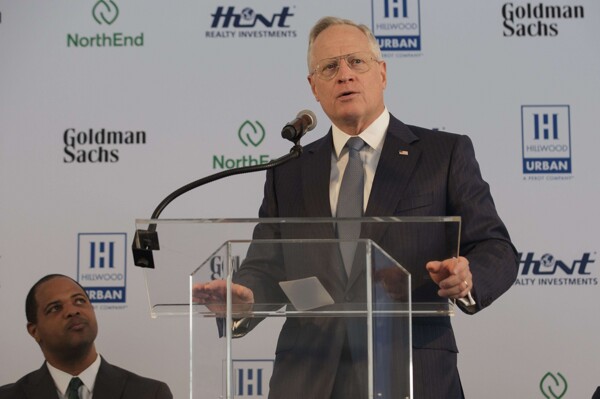
The United States Chamber of Commerce, which groups the most well-known companies – including automotive, oil, and many technology companies – firmly opposes the application of tariffs. Their insistence, as during Trump's first term, is to focus on correcting the fiscal problems of their country. Do you think President Donald Trump will impose widespread tariffs starting in March?
My biggest concern is the following: we are not ready for the opportunities ahead, and Vietnam, like other Asian countries outside of China, could take the best of the new era of industrial investment. That's the problem.
Let's see, it's not that Trump won't impose some tariffs against Mexico. He will, and as I've published before, I think the greatest risk is in cars. I spoke with economists from Mexico (look for Alejandro Saldaña, from the Ve Por Más bank), but what gives me the most signals is the position of Americans. There is a document that periodically shows what truly matters to business owners in the neighboring country.
What they expect is more trade agreements. But I believe that things will fall into place. The best for Mexico depends on Mexicans and not just their government. How? Interestingly, they do not ask for a reduction in income tax, as the U.S. president also wants to do, but to maintain it at an average of 21 percent; however, they do demand minor adjustments, such as allowing a deduction for research and development expenses. Why in that regard?
But I anticipate that there will not be 25 percent tariffs that meet the condition of being widespread and durable. What do I base my relative optimism on? The high-tech sector is remaining in Asia, although outside of China.
Returning to tariffs, I could be wrong since Trump is unpredictable. This will drive economic diversification and attract high-value investments. I perceive that many executives in Mexico are running around like a headless chicken when it comes to defining what technology to establish, say, in automation or artificial intelligence. They seem to have been caught off guard.
McKinsey confirmed this to me in a recent report revealing that Mexico continues to attract ‘nearshoring’ manufacturing, but that of lower added value, like clothing, let's say. Those who make everything from bits of plastic to those who produce brakes and engines must pay attention.
The Trump administration urgently needs to send signals of “revenge” to the impoverished regions of Pennsylvania and Michigan, filled with rusty neighborhoods and forgotten residents. Yesterday, the company Finsa, one of the main developers of industrial parks in Mexico, released its Industrial Development Index, which focuses on what is urgent for those who want to operate factories in Mexico: “The adoption of Industry 5.0 will allow Mexico not only to assemble products but also to participate in the design, customization, and development of technological solutions that respond to market needs.
But warnings have emerged from Dallas revealing that the impact of tariffs has already begun, as they expect hits in the costs of manufacturing companies, and various companies have already raised their product prices. Among the largest, the position is clearer: they do not want tariffs. If this were a betting issue, I would not bet that there will be tariffs. On the contrary, my perception is that sooner or later, ‘nearshoring’ will return.
Note, I am not talking about large companies but small and medium entrepreneurs who provide opinions for the Beige Book. This published text allows those working at the Federal Reserve distributing and printing dollars to know how sentiment is on the ground, beyond their desks and the windows of their buildings. Its most recent edition is from January 15, just started the year, with all the optimism that Trump could generate with his arrival at the White House, and this is what the Fed captured: “More contacts were optimistic about the prospects for 2025 than pessimistic, although contacts in several districts expressed concern that changes in immigration policy and tariffs could negatively impact the economy.” Among the most concerned are precisely the residents of Philadelphia, Pennsylvania.
We need to study and do it now.











